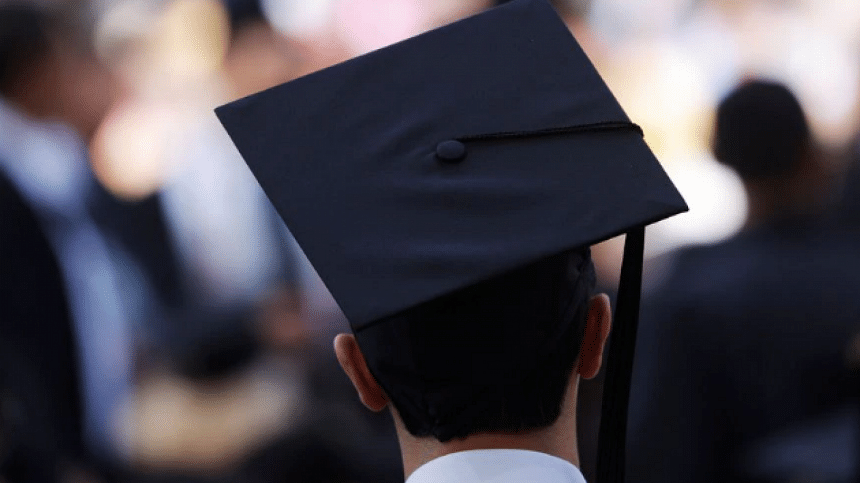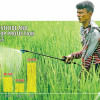Studying Abroad: Students struggle to open profiles for dollar crisis

"It's true that the majority of the banks are not opening new student files. Not only that, businesses are also failing to open letters of credit (LC) for the dollar crisis."
For over a year now, thousands of Bangladeshi students wanting to study abroad have encountered obstacles while trying to open bank profiles essential for paying their fees or other expenses like housing and transportation.
Pointing to a limited reserve of foreign exchange, authorities initially assured that the problem was a temporary one and that it would be resolved soon.
Although there have been signs of improvements in remittance and export earnings in January this year, the wait continues, leaving aspiring scholars and their ambitions in limbo.
This has been the case since July 2022, and so The Daily Star recently spoke to a dozen students who want to go abroad for higher studies to get an understanding of the present scenario.
They said most banks have stopped opening student profiles, while others require influential lobbying, hefty deposits, and high fees and dollar rates.
Robiul Islam faced an uphill battle in opening a bank account for his admission to an Australian university. Despite visiting 20 branches, success came only through his father's transaction history with Islami Bank.
Similarly, Rubaet Hossen needed a central bank official's recommendation to open an account at a private bank for his US studies.
One student said several banks asked him to park Tk 15 lakh to Tk 18 lakh as an FDR before opening student files.
Wishing to remain unnamed, he also said those banks also charged extra fees and the highest rates at Tk 128 to Tk 130 for each US dollar.
Standard Chartered Bank is one of the few banks that is facilitating students with the foreign transactions. Last year, the bank processed 4,870 student files, up from 3,787 the previous year.
Naser Ezaz Bijoy, chief executive officer at SCB, said, "We continue to process student files as most private banks aren't doing so."
In the post-pandemic period in 2021, the country's import payments started to rise faster than the remittance earnings and exports, which prompted a shortage of US dollars in banks.
The forex crisis intensified in mid-2022 due to the price rise of essential goods and other commodities in the global market because of the supply chain disruption created after the Russia-Ukraine war.
The central bank pumped over $28 billion to banks from its reserve to meet the forex shortage, BB data showed.
Syed Mahbubur Rahman, managing director of Mutual Trust Bank, told The Daily Star that there is still a dollar shortage in the market and the central bank is still pumping US dollars to banks from the reserve.
Between July and January of this fiscal year, BB sold around $8 billion to banks from the reserve.
"It's true that the majority of the banks are not opening new student files. Not only that, businesses are also failing to open letters of credit (LC) for the dollar crisis."
Rahman, however, said the fact that export and remittance earnings have increased is encouraging, and if this trend continues in the upcoming months, the ongoing crisis should soon come to an end.
The remittance earnings in January rose 7.69 percent year-on-year to $2.10 billion, marking the highest monthly inflow in the past seven months.
On the other hand, export earnings in January reached a record $5.72 billion, the highest ever in a single month.
From July to November of the current fiscal year, $240 million was sent abroad for higher education purposes, while the figure was $235 million for the same period of the 2022-23 fiscal year, as per the latest data from Bangladesh Bank.
A senior central bank official said that this amount increased only slightly compared to what it could have been due to banks' restrictions on opening student files as the demand for higher studies abroad has been ever-rising.
Usually, banks face pressure to open student files in the June-July period when admission opens at foreign universities.
In 2022, at least 49,151 Bangladeshi students went abroad to study in 58 countries, according to the latest data from the United Nations Educational, Scientific and Cultural Organization (Unesco)
The number was 24,112 in 2013 and 16,609 in 2008.
The United Arab Emirates is the top destination for Bangladeshis with 11,157 students, followed by the USA with 8,665 students, and Malaysia with 6,180.
The UK, Australia, Canada, Germany, Japan, and some European countries are also among the destinations usually most preferred by Bangladeshi students.

 For all latest news, follow The Daily Star's Google News channel.
For all latest news, follow The Daily Star's Google News channel. 








Comments